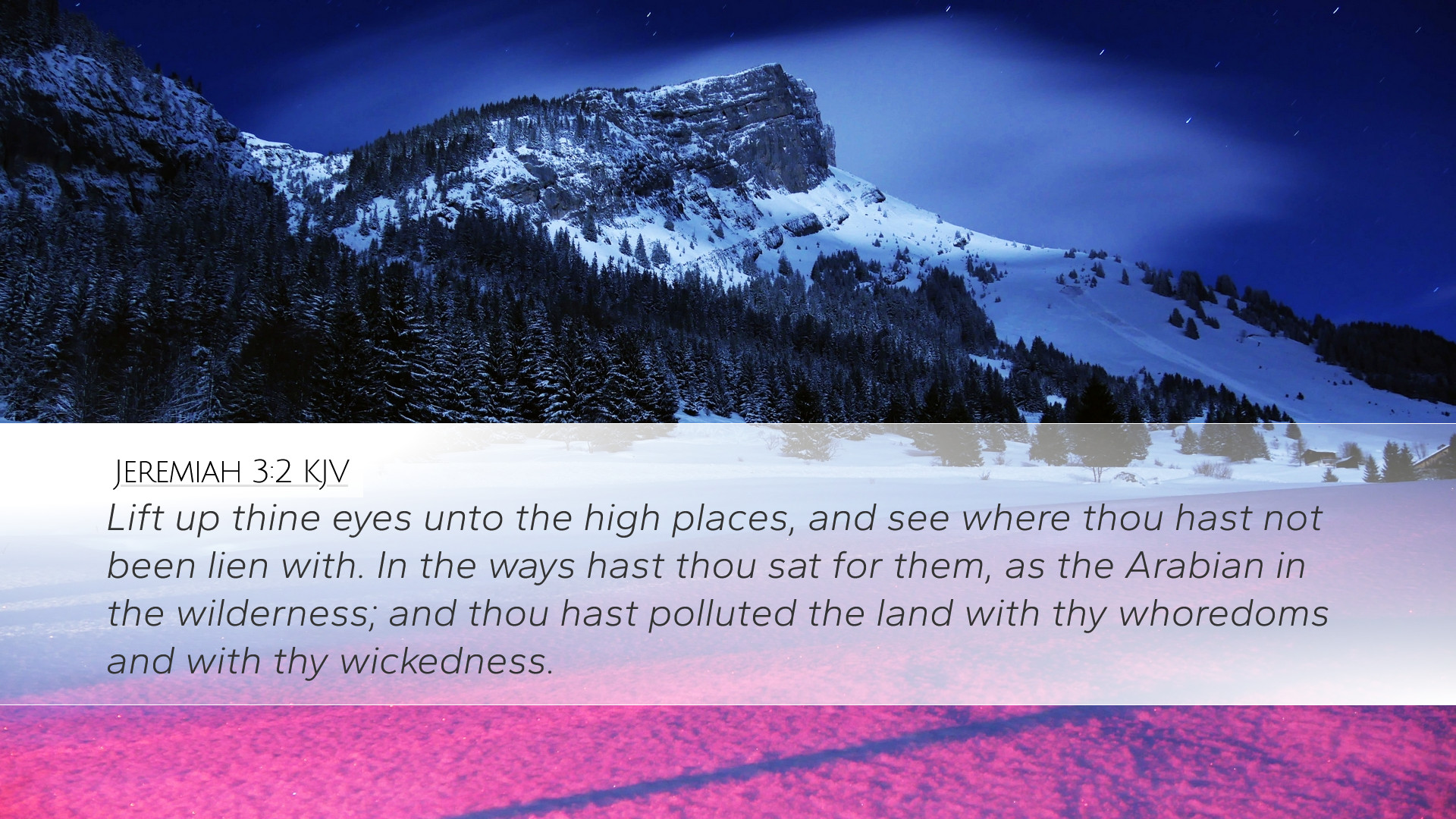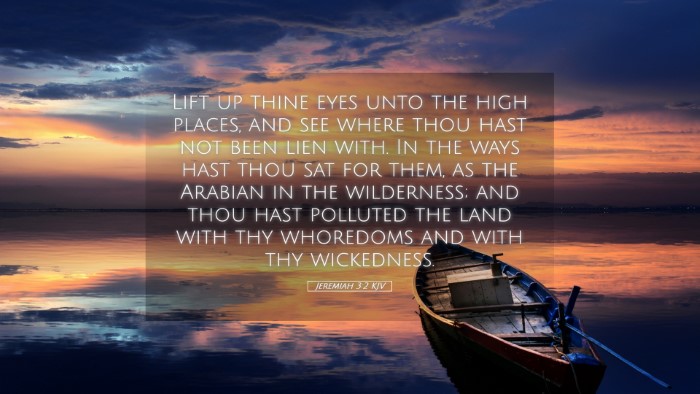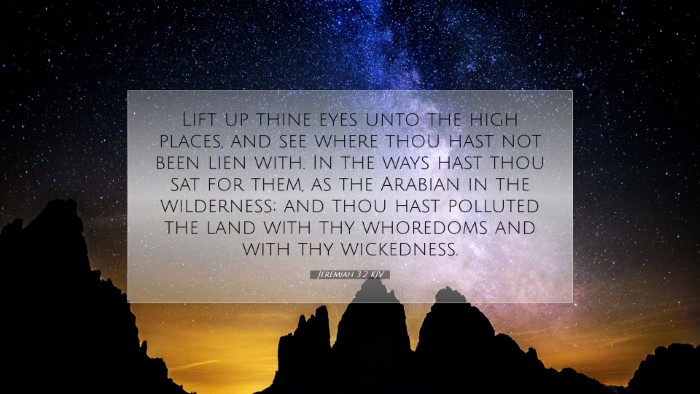Commentary on Jeremiah 3:2
Jeremiah 3:2 states:
"Lift up your eyes to the desolate heights and see: Where have you not lain with men? By the road, you have sat for them like an Arabian in the wilderness; and you have polluted the land with your harlotries and your wickedness."
Overview
This verse is part of a prophetic discourse in which the Lord, through the prophet Jeremiah, is addressing the unfaithfulness of Israel, particularly focusing on the metaphor of harlotry to describe idolatry and spiritual infidelity. The imagery of "lifting up your eyes" signifies both a literal and a metaphorical gaze towards the desolation wrought by sin.
Contextual Analysis
As we explore the context of Jeremiah 3:2, we understand that the prophet Jeremiah proclaims God's message during a turbulent period of disobedience among the people of Israel. The nation had turned away from the covenantal relationship with God and had engaged in the worship of foreign idols.
Matthew Henry's Commentary
Matthew Henry emphasizes the dramatic nature of God's accusations against Israel in this verse. He notes that God commands them to look around and observe the dire consequences of their actions. The phrase "lift up your eyes" implores them to recognize their spiritual condition.
- Desolation: Henry interprets the "desolate heights" as a metaphor for the spiritual barrenness that results from Israel’s infidelity.
- Imagery of Harlotries: He points out that God compares their idolatrous practices to the actions of a harlot, illustrating the gravity of their betrayal.
- Pollution of the Land: This highlights the moral and spiritual decay that idolatry has brought upon the entire nation.
Albert Barnes' Exegesis
Albert Barnes offers a detailed exegesis of the text, noting that "Where have you not lain with men?" illustrates the widespread nature of Israel's unfaithfulness. Barnes explains:
- Exhaustive Search: The rhetorical question suggests that Israel's infidelity has been comprehensive, leaving no part of the land untouched.
- Arabian in the Wilderness: This comparison signals an image of a traveler or nomad who betrays their covenant by engaging in licentious behavior, aligning with historical contexts of wandering tribes.
- Wickedness: Barnes interprets "wickedness" as not merely individual sins but as collective societal corruption stemming from abandonment of God.
Adam Clarke's Insights
Adam Clarke provides a theological reflection that underscores the emotional weight of God’s call to repentance. He notes that:
- Call to Reflection: Clarke stresses the importance of self-examination and recognizing the implications of one's actions in light of divine warning.
- Condemnation of Idolatry: Clarke identifies the act of sitting by the road as an active participation in religious prostitution, a clear contradiction to their devotion to Yahweh.
- Hope of Restoration: Despite the stark warnings, Clarke hints at God’s desire for restoration, reflecting on His enduring faithfulness to Israel.
Theological Implications
The theological implications of Jeremiah 3:2 are profound and multifaceted, offering deep insights for preachers, students, and scholars alike:
- The Nature of Sin: The text stands as a sobering reminder of the pervasive nature of sin and its ability to lead a people astray from their covenant with God.
- Divine Grievance: God's reaction to Israel’s unfaithfulness reveals the emotional aspect of divine relationships, illustrating that God is hurt by betrayal.
- Call to Repentance: The compelling imagery insists on the urgent need for the people to return to God, which resonates with themes of repentance found throughout Scripture.
Conclusion
In the end, Jeremiah 3:2 serves as both a warning and an invitation. The language employed by the prophet conveys the seriousness of spiritual infidelity while beckoning the wayward to return to the loving embrace of God. It highlights the stark reality of choosing paths of destruction yet simultaneously opens the door for reconciliation through genuine repentance.


